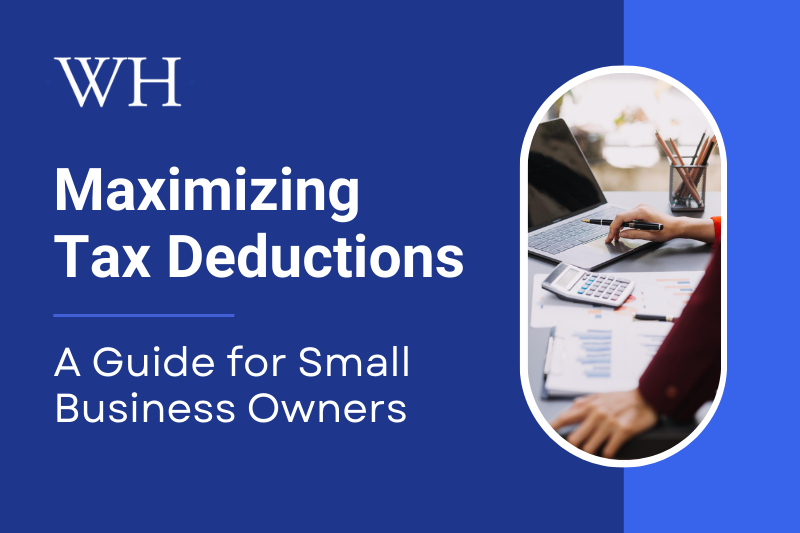
Maximizing Tax Deductions: A Guide for Small Business Owners
Tax season is crucial for small business owners, as it presents opportunities to reduce tax liability. Many businesses overlook valuable deductions simply because they are unaware of what is available. This guide is designed to help you identify key deductions, effectively track your expenses, and work smarter to maximize your savings.
Common Deductions You Shouldn’t Overlook
Small business owners can take advantage of numerous deductions to reduce taxable income. Here are some of the most commonly overlooked categories:
- Office Expenses: Rent, utilities, office supplies, and even some of your home office costs (if applicable) can qualify as deductions.
- Employee Benefits: Contributions to employee retirement plans, health insurance premiums, and bonuses are deductible.
- Travel and Meals: Business travel expenses, including airfare, lodging, and meals, are deductible. Keep detailed records, as IRS rules require specificity.
- Vehicle Expenses: If you use a vehicle for business purposes, you can deduct mileage or actual expenses like fuel, maintenance, and insurance.
- Marketing and Advertising: Costs related to digital ads, website maintenance, and promotional materials are fully deductible.
- Professional Services: Fees paid to accountants, lawyers, or consultants are legitimate deductions.
Industry-Specific Deductions
Various industries also come with their own unique opportunities for deductions. For example:
- Retail: Inventory write-offs and shrinkage.
- Construction: Costs related to tools and safety equipment.
- Freelancers: Subscriptions to industry tools like software, memberships, or continuing education.
Knowing the nuances of your industry can uncover additional savings. Consulting with a CPA who understands your business model is essential.
Tracking Expenses for Maximum Benefit
Accurate record-keeping is the foundation of claiming deductions. Here are some best practices:
- Digital Tools: Use an accounting software to track expenses in real time.
- Organized Records: Maintain receipts, invoices, and documentation for at least three years. Categorize them by type of expense to streamline preparation.
- Mileage Logs: Use apps or spreadsheets to record business-related mileage accurately.
By staying organized, you’ll save time and reduce stress when it’s time to file.
The Role of a CPA in Maximizing Deductions
A trusted CPA does more than file taxes—they identify overlooked opportunities and ensure compliance. Here’s how working with Waters Hardy can benefit your business:
- Tailored Advice: We’ll analyze your financials to identify deductions unique to your situation.
- Compliance and Accuracy: Avoid errors and potential penalties by ensuring your deductions meet IRS standards.
- Proactive Planning: Year-round advice to position your business for long-term tax efficiency.
Case Study: How One Business Saved Thousands
One of our clients, a Dallas-based small business, approached Waters Hardy to review their tax filings. By identifying underreported deductions, including home office expenses and depreciation on equipment, we reduced their tax liability by over $8,000. This is the power of proactive tax planning.
Conclusion
Maximizing deductions isn’t just about saving money—it’s about reinvesting in your business and achieving financial success. You can maximize your savings this tax season by staying organized, understanding industry-specific opportunities, and partnering with a great CPA.
Ready to maximize your deductions? Schedule a consultation with Waters Hardy today to get started!
